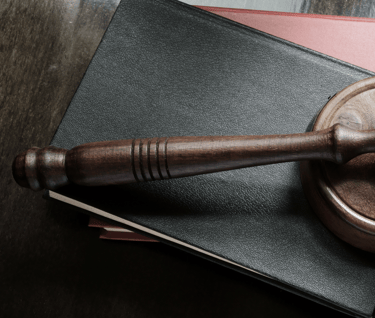


Civil Law

Civil law in India governs the rights and obligations of individuals and entities in their private relationships. It deals with non-criminal disputes where the aggrieved party seeks remedies such as compensation, injunctions, or declaratory relief. Civil suits are governed primarily by the Code of Civil Procedure, 1908 (CPC), and encompass a wide variety of issues including property, contracts, family law, torts, and inheritance. Civil suits are instituted under Section 26 of the CPC by filing a plaint. The contents and structure of the plaint must comply with Order VII of the CPC. Various other procedural aspects of civil litigation are governed by corresponding Orders under the CPC, including:-
Order I: Parties to the suit
Order II: Frame of the suit
Order IV: Institution of suits
Order V: Issue and service of summons
Order VI: General rules about pleadings
Order VIII: Written statements by the defendant
Order IX: Appearance of parties and consequences of non-appearance
Order X: Examination of parties and framing of issues
Orders XI to XIII: Discovery, inspection, and production of documents
Order XIV: Settlement of issues
Orders XV to XX: Conduct of trial, hearing, and judgment
Order XXI: Execution of decrees
Orders XXII to XXXVII: Special situations like death of a party, withdrawal, compromise, summary suits, etc.
Jurisdiction is determined by the subject matter, territorial limits, and pecuniary value of the claim.
The Limitation Act, 1963 prescribes the time limits for filing civil suits, which can vary from 1 year to 12 years depending on the nature of the claim. For instance, suits for compensation in tort generally have a 1-year limitation, contract enforcement has a 3-year period, and suits involving immovable property may have a 12-year limitation. The limitation period is calculated from the date when the cause of action arises, that is, the day on which the legal injury or breach first occurred. However, certain factors can extend or suspend the limitation period. These include acknowledgments of debt (Section 18), part payments (Section 19), or periods where the plaintiff was legally disabled from filing (e.g., minority or insanity). Timely filing is essential because a suit filed beyond the prescribed period can be barred by law and dismissed at the threshold.
Additional Civil Dispute Categories
Service and Employment Disputes (Civil Remedies)
Disputes may arise from breaches of employment contracts, especially where statutory labor law remedies are not available. Claims involving wrongful termination, non-payment of salaries, enforcement of service bonds, or disputes arising out of employment terms in private sector contracts can be addressed through civil suits, particularly when the employer is not covered under industrial dispute statutes.
Educational Institution Disputes
Private institutions occasionally deny rightful access to certificates, unjustly expel students, or fail to refund fees. Such cases can be taken up before civil courts when regulatory forums are ineffective or unavailable. Claims may also involve misrepresentation by educational institutions regarding course recognition, placement guarantees, or infrastructure.
Intellectual Property (Civil Enforcement)
Civil remedies for copyright, trademark, and patent infringement include injunctions, damages, and delivery of infringing goods. Actions for passing off, misuse of registered marks, and violation of commercial goodwill fall under this category. These suits are governed by IP statutes but enforced through civil courts.
Company Law Disputes (Civil Nature)
While some company law disputes fall within the jurisdiction of tribunals like the NCLT, civil courts may still hear matters involving breach of shareholder agreements, enforcement of joint venture terms, or specific performance between partners or promoters. Claims of minority oppression and corporate mismanagement may overlap with statutory forums but can give rise to civil litigation in certain contexts.
Civil Defamation and Privacy Breaches
Publication of false information, image misuse, or leaks of private conversations or data can result in civil suits for compensation. While defamation is also a criminal offence, individuals often seek damages and injunctions through civil courts for reputational harm or privacy violations.
Land Acquisition and Compensation Disputes
Challenges to land acquisition notices, disputes over inadequate compensation, and delay in disbursement are civil in nature when not fully covered by statutory tribunals. Claims may include interest on delayed payments, title clarifications, or enforcement of agreed terms in acquisition settlements.
Banking and Financial Institution Claims (Civil Jurisdiction)
When borrowers or customers have grievances against NBFCs or private lenders that do not qualify under DRT jurisdiction, civil courts become the forum for disputes. Examples include wrongful debits, misrepresentation in loan agreements, or forceful recovery practices.
Real Estate Regulatory Disputes (Beyond RERA)
Many issues such as disputes over clubhouse access, parking allocations, or maintenance charges may not fall squarely under RERA but require civil adjudication. These include claims for specific amenities promised in brochures but not delivered.
Partnership and Business Dissolution Disputes
When business partners fall out or one party seeks to exit a firm, civil suits may be filed for dissolution, accounting of profits, and division of business assets. These cases often involve interim injunctions, valuation disputes, and settlement of liabilities.
Property and Real Estate Disputes
This category includes disputes related to title, ownership, possession, encroachment, landlord-tenant relationships, and easement rights. Partition suits and revenue record disputes are also common. Delayed possession and violations by builders can also lead to claims under RERA.
Contractual and Commercial Disputes
Civil law covers breaches of commercial agreements, service MoUs, and non-performance of contracts. Disputes over payment defaults, service deficiencies, and non-fulfilment of terms fall under this head. Remedies include damages and specific performance.
Money Recovery and Debt Matters
These cases involve unpaid dues, personal loans, dishonoured cheques, and refund claims. Recovery suits can be based on written contracts or oral promises with evidence. Civil courts also address unjust enrichment and security deposit disputes.
Tort and Compensation Claims
Claims for medical negligence, personal injury, defamation, trespass, or nuisance fall under tort law. These cases seek monetary compensation for harm, injury, or reputational damage caused by another's wrongful act.
Family and Matrimonial Civil Disputes
Civil courts handle divorce, maintenance, custody, dowry recovery, and guardianship matters under various personal laws. These disputes focus on personal relationships and the enforcement of family rights.
Succession, Inheritance and Wills
These cases deal with probate of wills, partition of family property, and legal heirship. Claims may arise under intestate succession laws or challenge to validity of testamentary documents.
Declaratory and Injunctive Relief
Suits in this category seek a declaration of legal status or injunction to restrain specific actions. These remedies are often used in property and commercial disputes to prevent further harm.
Civil Appeals and Revisions
When a civil judgment is challenged, appeals and revisions are filed in higher courts. These may involve factual or legal errors, procedural irregularities, or new grounds for review.
Miscellaneous Civil Proceedings
These include suits under the Specific Relief Act, public declarations, name change petitions, and civil contempt actions. They cover civil matters not otherwise classified.
Courts and Forums That Adjudicate Civil Matters
Civil matters are litigated before:-
District Civil Courts with territorial and pecuniary jurisdiction
Family Courts for civil matrimonial disputes
Consumer Commissions when the civil nature of disputes overlaps with consumer grievances
High Courts on both original and appellate jurisdiction
Supreme Court of India for final civil appeals arising from High Court decisions
Civil law is vast and layered, covering a wide spectrum of personal and commercial relationships. A clear understanding of procedural rules, evidence, limitation periods, and applicable substantive laws is crucial for effective civil litigation and rights enforcement under Indian legal framework.
If you're facing a civil dispute or need clarity on how the law applies to your situation, consider seeking early legal advice. An informed approach can often prevent escalation and save time, cost, and effort.
